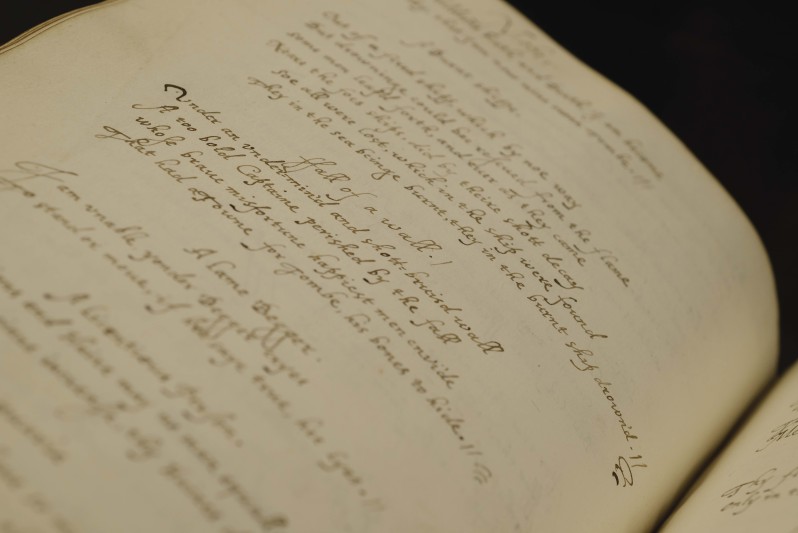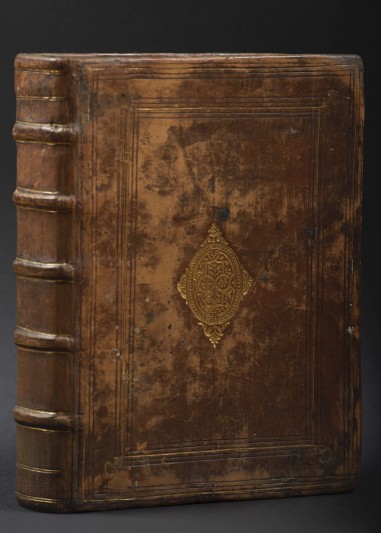Dr Alexander Lock, Curator of Modern Archives and Manuscripts, writes: John Donne (1572–1631) was one of the most popular poets of the late 16th and early 17th centuries and is considered to be one of the greatest Renaissance writers in the English canon. The Melford Hall Manuscript is one of the largest surviving near contemporary manuscript collections of Donne’s poetry covering the entire range of his poetical output. Until its discovery at Melford Hall in 2018 it was unknown to scholarship and, until its acquisition, was probably the last (and most significant) 17th-century manuscript collection of Donne’s poetry to remain in private hands.
The manuscript was initially sold to a foreign buyer at Sotheby’s in December 2018 and shortly thereafter the Culture Minister placed a temporary export bar on the item. Examining the manuscript, the Independent Reviewing Committee considered the volume to be ‘one of the five most significant and largest collections of Donne’s works ever to be identified and the most important to emerge in almost half a century.’ The placement of a temporary export bar on the manuscript gave the British Library the opportunity to fundraise for the acquisition and we are grateful to the Friends of the National Libraries for their contribution towards this.
The Melford Hall Manuscript is particularly exciting as it provides new evidence for the study of Donne’s work and the literary culture in which it was created. John Donne famously eschewed print publication and disseminated (or ‘published’) his poetical work almost entirely in manuscript amongst a select circle (or coterie) of privileged friends and potential patrons. These readers would, in turn, have Donne’s lines copied to keep in their own private collections which they may share with their own close friends. Only one English poem survives written in Donne’s hand and so much of what we know about his poetical output comes from these manuscript copies made for, and by, his ‘coterie’ of readers. The Melford Hall
Manuscript, therefore, is of outstanding literary significance because it provides substantial new, and contemporary, evidence as to how Donne’s poetry was written, copied, circulated, and received. The volume also contains scribal copies of poems by Donne’s contemporaries such as Francis Beaumont (1584–1616), Thomas Carew (1595–1640), and Richard Corbet (1582–1635), amongst others, as well as late 17th-century notes on a series of sermons and some mid-18th-century songs. Taken together this volume also offers scholars a rich seam of new evidence for the study of early modern manuscript culture more broadly.
The Melford Hall Manuscript will be available in perpetuity at the British Library, enabling researchers to consult it alongside other pre-eminent early modern literary collections housed at the Library, including other scribal copies of Donne’s poetry, the only surviving play script annotated by William Shakespeare (1564–1616) and autograph works by Ben Jonson (1572–1637). Access will be provided in the Library’s Manuscripts Reading Room and the volume has been fully digitised for readers to access freely online. Interpretative material will be made available online and the volume may be displayed in the Library’s Treasures Gallery.

